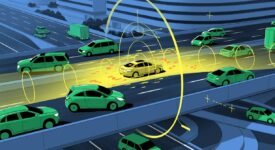
But science—especially new science—routinely faces pushback. Early in the AIDS epidemic, scientists discovered HIV, the virus that causes the disease. “There were people here in the United States, all around the world, who said, ‘Well, I know that they identified this virus, and they’re saying it causes AIDS, but I don’t believe that’s true,’” says Brandt.
“It’s not surprising,” he continues. “In pandemics, there’s always these kinds of debates. But very quickly people did become convinced.”
Although it may feel like Covid-19 has plagued us forever, in reality scientists are only two years into the twin processes of understanding the disease and educating the public about it. Jamieson’s team at the Annenberg Public Policy Center has conducted surveys on scientific knowledge throughout the pandemic. They have asked participants for their thoughts on the effectiveness of vaccines, masks, and other behaviors. And, despite the maelstrom of misbeliefs working against knowledge, Jamieson finds that people are in fact learning. In two surveys of about 800 random Americans taken in July and November of 2020, the majority of respondents said they accepted that wearing masks helps prevent the spread of respiratory disease. That number jumped from 79 to 85 percent over the five-month period. In a separate survey from March and April of this year, 75 percent said that getting the Covid-19 vaccine is safer than getting the virus. “Most people are getting the answers right,” Jamieson says. “And they didn’t have any of those answers before Covid because these answers are Covid-specific.”
Still, that’s not 100 percent. But to Jamieson, it’s a surprising number worth celebrating. “People don’t just accept new vaccines,” she says. “If they did, we’d have higher uptake of the HPV vaccine. We’d have higher uptake of the flu vaccine. That’s a sign that they learned something.”
Vaccine-hesitant participants in Jamieson’s study showed that they learned something new about public health, too. The 2021 survey took place after the Pfizer and Moderna vaccines received emergency use authorization from the FDA, but before the Pfizer shot had received full approval. “People said to us, ‘It hasn’t been authorized yet. No, wait a minute! I didn’t mean that. It hasn’t been approved yet,’” says Jamieson. “They now know something about the approval process and the authorization process.”
This exposure to new terminology has kept Sneller intrigued with the linguistics project. “One thing that strikes me is how scientifically literate especially our teenage participants are about things like mRNA vaccines,” Sneller says. In their weekly audio diaries, participants talk about their day-to-day lives, and some teens talk about mRNA vaccines and how they differ from other formulations. That is cutting-edge science, not something that’s long been a part of schools’ curriculums. “That’s happening directly because of the pandemic,” Sneller says.
Young kids are learning more health science, too. Early in the pandemic, researchers surveyed kids aged 7 to 12 from the United Kingdom, Sweden, Brazil, Spain, Canada, and Australia. The team created an online survey to ask kids and their parents what they knew about the outbreak—and what they wanted to know. “Really early on, kids were saying, ‘When will a vaccine be available?’” says Lucy Bray, a pediatric nurse and professor of children’s health literacy at Edge Hill University in the UK, who led the study. The kids asked why the pandemic started. They asked if their family would be safe. “Really sensible, quite informed questions,” she says.


